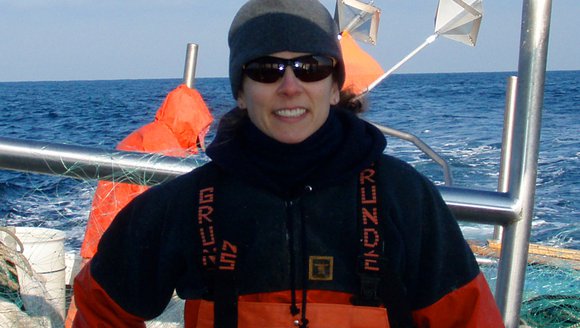Groundfish Management Strategy Evaluation
Providing a comprehensive view of alternative groundfish management strategies in the face of climate change.
The Northeast U.S. Shelf Large Marine Ecosystem (NESLME) has warmed over the last decade, with a long-term warming trend that is four times the global average rate and recent decadal warming that is faster than 99.9% of the global ocean. Climate-mediated change in this region is unprecedented, and the impacts of climate change on marine fisheries resources are increasing. Some groundfish stocks in the NESLME, such as Georges Bank cod, have declined to record-low biomass in recent years, whereas others, such as Georges Bank haddock, have increased to record-high biomass. Our research will support economic and ecologic resilience by linking environmental changes with the most effective, forward-thinking fishery management strategies.
Research Objectives:
- Evaluate how principal groundfish stocks will respond to regional climate change.
- Investigate plausible approaches to tailoring fisheries management procedures to climate-informed stock assessments, biological reference points, and harvest control rules.
- Quantify the expected ecological and economic performance of alternative fisheries management procedures in a changing climate.
The goal of our research is to develop fisheries management procedures that consider climate-driven changes and evaluate whether they result in more adaptive, successful management of groundfish species given forecasted climate change in the NESLME.
We are applying Management Strategy Evaluation (MSE) to address our research objectives. At the center of our MSE approach are a series of operating models that incorporate mechanistic relationships between life history processes and temperature to simulate population dynamics of Georges Bank groundfish stocks. These models are simulated under alternative temperature scenarios that capture future projected climate change in the NESLME. We then simulate sampling these stocks through the fishery and through scientific surveys.
The simulated data is used to assess the stocks using standard stock assessment models, and models that allow for non-stationarity or incorporate temperature information directly into process equations. Additionally, we are developing and testing biological reference points and alternative methods of advice setting that captures non-stationarity in aspects of productivity and directly integrates temperature.
We are combining economic metrics with biomass-related and yield metrics derived from the MSE to provide a comprehensive view of the economic and ecological risks and returns of alternative fisheries management strategies. We will develop an interactive web application for synthesizing the results of the MSE and use this as a tool to communicate with stakeholders.
Project Team
-
![This is the staff photo for lisa kerr]()
Lisa Kerr, Ph.D.
Associate Professor, UMaine School of Marine Sciences
-
![A woman smiles for the camera in a grey pullover while holding a black camera.]()
Mackenzie Mazur, Ph.D.
Postdoctoral Research Associate
Read More
-
![Gulf of Maine, Explained: Ecosystem Modeling]()
Gulf of Maine, Explained: Ecosystem Modeling
Technology has transformed nearly every workplace in the country over the last 30 years. Research labs are no exception, as modern computing has made significant …
Gulf of Maine, Explained
-
![Gulf of Maine, Explained: The Warming Gulf of Maine]()
Gulf of Maine, Explained: The Warming Gulf of Maine
What was once a startling observation among our team of ecosystem modelers is now common knowledge: over the course of a decade, the Gulf of …
Gulf of Maine, Explained
-
![Improving Climate-Readiness of US Fisheries]()
Improving Climate-Readiness of US Fisheries
The National Oceanic and Atmospheric Administration (NOAA) has awarded the Gulf of Maine Research Institute $1.1 million to investigate impacts of climate change on groundfish. …
Announcements
-
![Exploring Electronic Monitoring for New England Groundfish Fishery]()
Exploring Electronic Monitoring for New England Groundfish Fishery
One of the most pressing challenges for New England’s groundfish fleet is the issue of at-sea monitoring. Federal regulations require onboard human observers to verify …
Announcements



